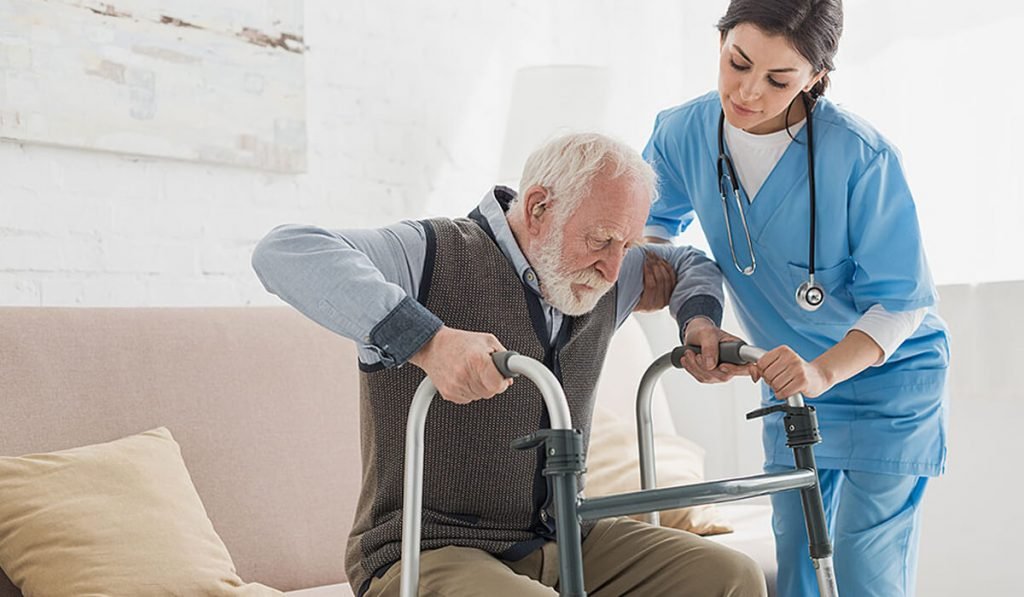You may wonder what options are available for the disabled, elderly, or ill when it is hard for them to complete daily tasks. In some circumstances, your loved one may need someone there with him or her every day to help. Although you may try to help out, this choice can leave you feeling exhausted and tired since this kind of caretaking is so physically draining. Nurses that work in home care can help your loved one stay safe and healthy as well as look after them.
Table of Contents
1. Assistance With Food And Drink
Preparing regular meals that contain all the necessary nutrients and food groups is an important part of living well. If someone cannot stand for a long time or struggles to hold a knife or large bowl, then this task may be too hard to accomplish.
Having to only eat whatever you can open without any preparation may mean older or disabled people struggle to consume the proper amount of vitamins and nutrients needed to stay healthy. A nurse who can prepare and cook food while also measuring proportions can greatly help the health of someone with special dietary needs.
2. Medication Management
Many people who are older or have disabilities tend to have multiple medications they need to take each day. It can be tough to remember what dosage to take and when to take them, and a simple mistake can lead to serious health concerns. If you go with home care nursing, then you can hire a nurse to help manage these medications and check on your loved one.
This nurse can also help remind your loved one when his or her medication is getting low so that they can order more. Having someone else to double-check this important part of a disabled, elderly, or ill person’s daily routine is a benefit for you and your loved one.
3. Emotional Support and Care
Being at home alone for long periods of time can cause chronic anxiety and even depression, which can lead to serious mental and physical health problems if left unchecked. Having a professional in the house with your loved one can help them if they suffer from a sudden issue or if they are simply feeling lonely.
With all the busyness of modern life, it can be tough for you to be in the same house with someone who is ill or elderly all the time. Having a supportive and caring connection with a nurse is one way to keep your loved one from feeling sluggish or withdrawn.
4. Professional Knowledge
One major difference between nurses and family members is that nurses can give your loved one specific and tested medical advice or help. Knowledge about parts of the body and what signs to look for when it comes to chronic conditions is invaluable when sudden health problems strike. In the event of a stroke or other issue, you can count on nurses to know what to do and how to prevent further harm.
5. Flexible Scheduling
If your availability changes whereby you cannot visit your loved one as often as you could before, you may not have someone there to check on him or her. It may seem tempting to ask family or friends, but they could have scheduling clashes or cancel at the last minute.
Having a nurse on hand allows you the flexibility and peace of mind to be able to rely on someone taking care of your loved one – no matter where you are, or how long you have to stay out. This kind of flexible scheduling is perfect for people who need help on the weekends or later in the day.
6. Help With Grooming
It can be a struggle to get in and out of the shower when you cannot properly stand for too long or move your arms or legs in certain ways. Helping those who need extra assistance grooming themselves is one way a nurse can make life easier for people who have illnesses or are older.
This kind of personalised care can help put your mind at ease, knowing that your loved one is confident in how he or she looks and dresses. Talking about the option of hiring a nurse is an important step for someone who needs a bit of assistance.
